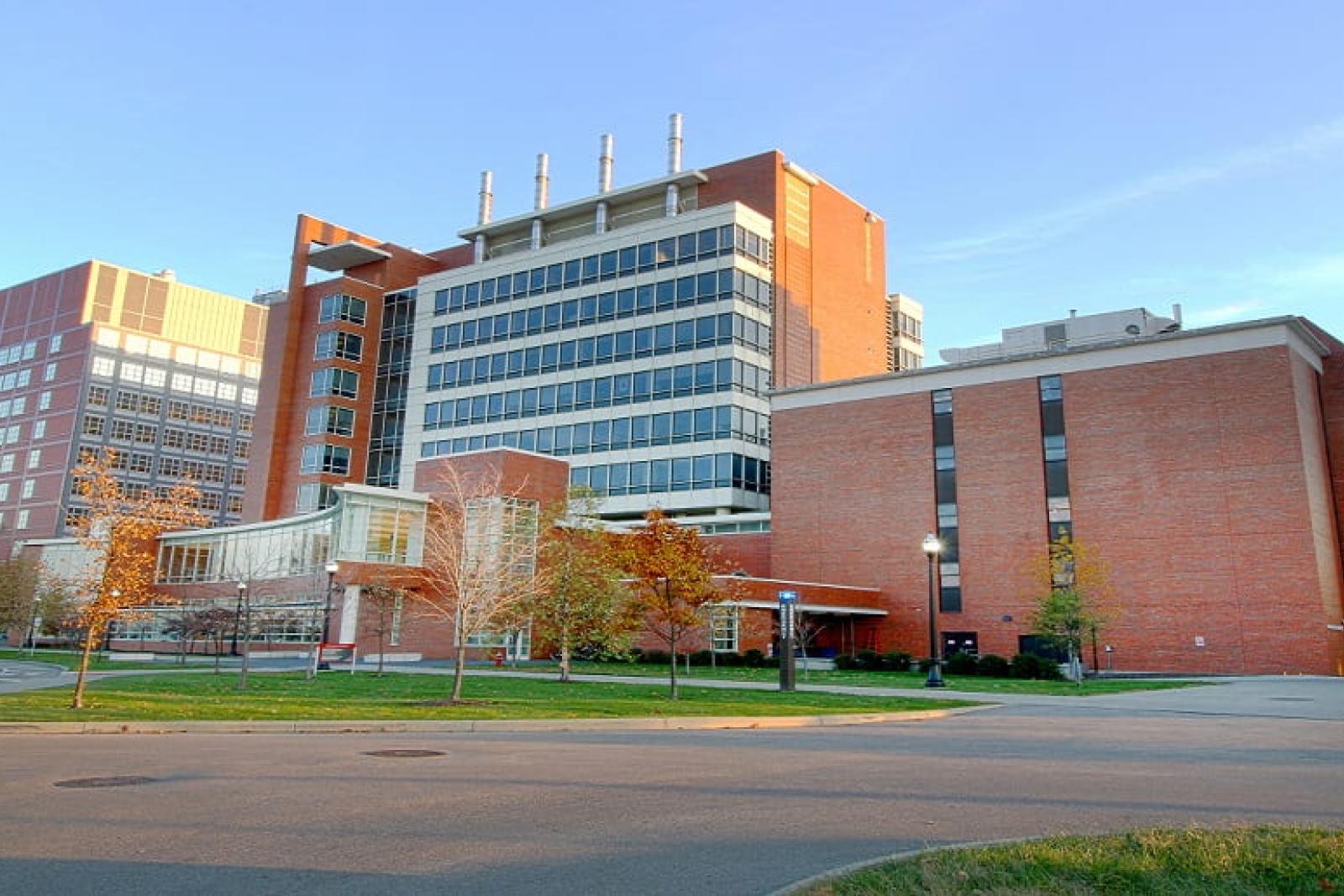Guo and Fuchs team receives prestigious President’s Research Excellence (PRE) Catalyst Award

Researchers at The Ohio State University College of Pharmacy recently received the President’s Research Excellence (PRE) Catalyst Award for their proposal, "Platform for the synthesis of ribonucleotide analogs for incorporation into RNA for cancer chemotherapy and cancer mRNA vaccines."
The interdisciplinary research team is led by Professor of Pharmaceutics and Pharmacology and the Sylvan G. Frank Endowed Chair in Pharmaceutics and Drug Delivery Peixuan Guo, PhD. Professor of Medicinal Chemistry and Pharmacognosy and Associate Dean for Research and Graduate Studies James Fuchs, PhD, as well as Drs. Raphael Pollock, Karin Musier-Forsyth, Wayne Miles, Irina Artsimovitch and Daniel Binzel, are also working on the grant as co-principal investigators and collaborators.
The President’s Research Excellence (PRE) program provides seed support for cross and interdisciplinary research at Ohio State through PRE Catalyst and PRE Accelerator Awards. These grants are awarded to research proposals with the potential to attract external funding and attention.
The College of Pharmacy team received the larger-scale Catalyst Award, which is intended for high-impact research addressing emerging or existing challenges of global societal importance. Catalyst-awarded projects also offer long-term, sustained and significant impact, positioning Ohio State as a leader in the project’s research area.
Because selected projects aim to achieve both scientific discovery and outside collaborations, competition for the prestigious PRE Awards is high.
The project will focus on using RNA strands and nanoparticles to develop therapeutics and vaccines that specifically target cancer cells. Initially, the RNA will be utilized as a platform for the delivery of nucleoside drugs, effectively enhancing their ability to selectively recognize and eliminate cancer cells. The team will also use a similar approach to develop and optimize RNA-based cancer vaccine technology. This proposed research builds on unique and well-established expertise present at Ohio State.
If the project succeeds in using new ribonucleotide analogs, mRNA vaccines could see great improvement and offer future advances in cell-specific gene repair therapies.
“As researchers, we always hope to have the opportunity to contribute to cutting-edge science that could ultimately have a positive impact on people’s lives,” Dr. Fuchs said. “This grant and the RNA delivery technology that is being developed as a part of it is a good example of this kind of opportunity and should really help us advance in this area.”
The award period began May 1 and will run until Oct. 31, 2025. In addition to the PRE Catalyst Award funds, support from the Ohio State Office of Research is also provided to help the team accelerate this research toward subsequent external funding and development opportunities.
The group expects that meeting all of the project’s aims will extend beyond the two-year period of the PRE Catalyst grant, but with the strong interdisciplinary team tackling the process and range of resources at hand, they’re confident in making major strides for cancer treatment.

Dr. Guo’s lab is internationally recognized for its expertise in RNA nanobiotechnology and nanomedicine. Dr. Guo himself created the novel method for the production of the vaccinia virus mRNA capping enzyme (Guo P and Moss B, Interaction, and mutual stabilization of the two subunits of vaccinia virus mRNA capping enzyme co-expressed in Escherichia coli. PNAS, 1990 ,7:4023), which is currently used in the production of the COVID-19 mRNA vaccine.
Additionally, several of the project’s PI’s currently work together across campus, and collectively, the group’s investigators hold outstanding credentials.
Building on this expertise and the recent boom in attention for RNA-based therapeutics is likely to position Ohio State as a leader in the field. Moreover, if successful, the platform technologies that come out of these studies have the potential to advance research well beyond RNA-based vaccines/therapeutics and cancer treatment.